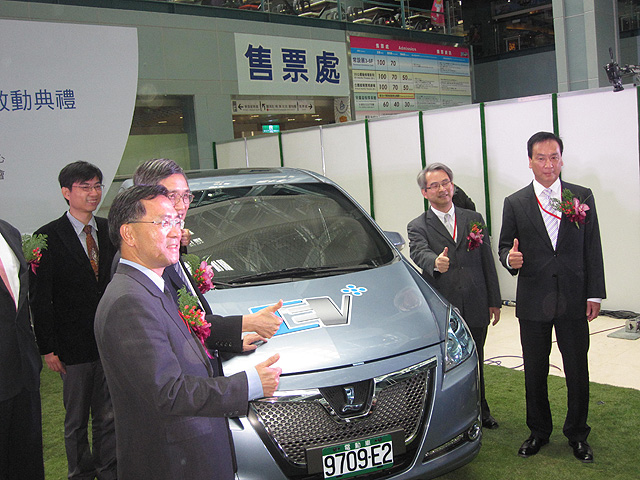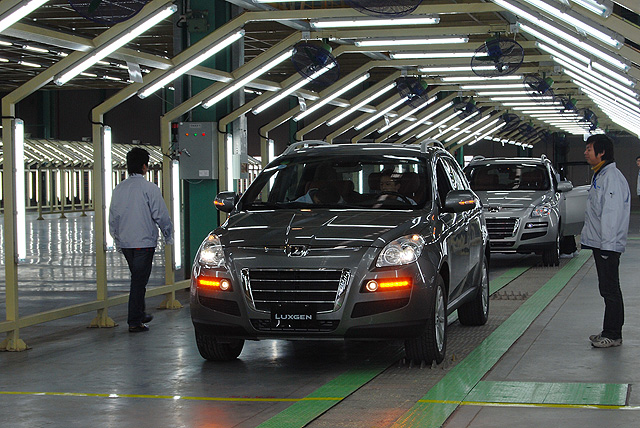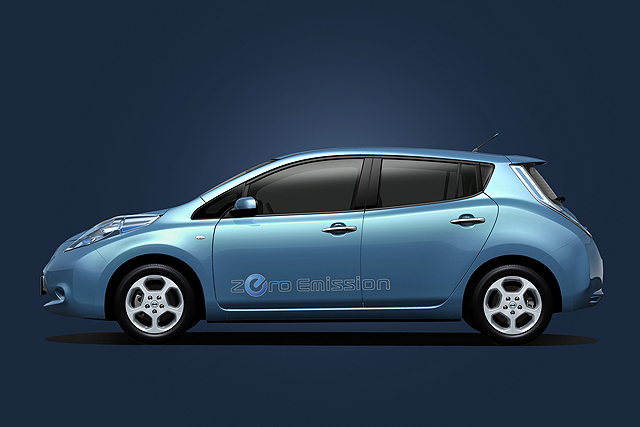Transportation Equipment Industry: A Driving Force in 2012
2012/05/30 | By Quincy LiangSeveral major events in 2011 have given Taiwan's transportation equipment industry reasons to be hopeful for 2012.
The Automotive Research & Testing Center (ARTC), the most important vehicle testing and R&D hub in Taiwan, reported on the following major events.
New Car Sales in Taiwan up 15.5% in 2011
In 2011, new car sales increased 15.5% over the previous year to reach a six-year high of 378,291, according to figures compiled by the Ministry of Transportation and Communications (MOTC). Most major automakers on the island are optimistic that their 2012 sales will grow due to replacement purchases.
Sales gains for all of the top seven automakers were in double digits in 2011, except for Honda Taiwan Motor Co. seeing a decrease in its new car delivery numbers as a result of the auto-parts supply shortage from flooding in Thailand. In 2011, Honda's sales in Taiwan dropped 31.2%.
Hotai Motor Co. Ltd., the Toyota and Lexus agent in Taiwan, maintained its top seller's position for the 10th consecutive year in 2011, commanding 31.6% of the total market share. Yulon Nissan Motor Co., which includes Nissan and Infiniti brands, and China Motor Corp. (Mitsubishi) finished in the second and third positions, respectively, last year.
Sanyang Industry Co., Ltd., which last year was among the top seven sellers, and manufactures and sells Hyundai models in Taiwan, saw its sales increase 31.8% (it sold 14,403 units) in 2011, the highest growth rate among local competitors. The company expects another impressive sales increase in 2012.
Sales of imported cars were higher than those of domestic brands, increasing 29.7% year-on-year (YoY) in 2011. Toyota was the top overall import brand while Mercedes-Benz secured the top position among imported luxury cars, followed by Volkswagen and BMW.
Demand for new cars is expected to remain strong in early 2012 since many auto distributors delayed their deliveries after meeting their annual sales goals for last year. New car sales in January 2012 should exceed 43,000 units, including about 16,000 Toyotas, according to industry experts.
New Car Sales in Taiwan (2011)
Make (local maker) 2011
Jan.-Dec. YoY Market Share
Toyota (Hotai) 119,425 17.6% 31.6%
Mitsubishi (China Motor) 54,891 13.6% 14.5%
Nissan (Yulon Nissan) 44,282 16.3% 11.7%
Ford (Ford Lio Ho) 22,135 11.4% 5.9%
Honda (Honda Taiwan) 19,497 -30.2% 5.2%
Mazda (Mazda Taiwan) 16,187 5.5% 4.3%
Hyundai 14,403 31.8% 3.8%
Others 87,471 33.4% --
Overall 378,291 15.5% 100.0%
Source: MOTC
The domestic automobile market is recovering, according to ARTC, after reaching its lowest point in 2006 when it sold only around 230,000 units. The recovery comes despite economic uncertainties, shortages in parts supplies, and new car price hikes.
The 2012 Taipei International Auto Show from late December 2011 to early January 2012 was a good start to a new year for the domestic auto market. Together, automakers received orders for more than 5,000 units, and the ongoing 10-year replacement cycle has created momentum for 2012 domestic new car sales, according to ARTC.
New PTWs Sales in Taiwan Up 21.8% in 2011
Some 640,652 new powered two-wheelers (PTWs) were sold in Taiwan in 2011, a three-year high and a 21.8% increase from 2010, according to MOTC.
Last year in Taiwan, every two new PTWs sold included one 125cc scooter while the market share of 50cc light scooters dropped to 1.6%.
In 2011, Kwang Yang Motor Co., Ltd., with its KYMCO brand, maintained the top position in the domestic market for the 12th consecutive year by selling about 262,000 units. The company's 41% market share and a YoY volume increase of 36.1% were the highest in Taiwan's history.
The second top seller last year, Yamaha Taiwan, followed by SYM in the third position, sold 176,000 (with a 27.5% market share) and 167,000 (with a 26.1% market share) units, respectively.
Some 600,000 new PTWs should be sold in Taiwan in 2012, despite economic uncertainties and the fact that more Mass Rapid Transit (MRT) systems in major cities will become operational this year.
The 2012 sales goals of all the top three PTW sellers in Taiwan, KYMCO, Sanyang Industry Co., Ltd. (SYM) and Yamaha Motor Taiwan Co. (Yamaha), are similar to what they were in 2011. Both KYMCO and SYM have lowered their export volume goals due largely to the sovereignty debt issues in Europe, which is their major export market.
The hike in PTW prices in recent years has been due to the fifth-stage emission standard in Taiwan that requires all PTWs to be equipped with an electronic fuel-injection (EFI) system, which deters further market growth, according to ARTC. In 2011, KYMCO and SYM increased sales by marketing entry-level 125cc scooter models priced for less than NT$50,000 (US$167).
Due to increased sales of the 125cc scooter models, the market shares of the 80cc to 110cc PTWs models dropped to 35.5% in 2011, down from 41.9% in 2010.
The sixth-stage emission standard in Taiwan, which should become effective in 2013, requires that all new PTWs are equipped with an automatic switch-off device during idle speed, and this might lead to increased sales in the second half of 2012, according to ARTC. However, in the long-term, PTW sales will continue falling as the Mass Rapid Transit (MRT) systems in major cities increase the popularity of electric scooters and PTW manufacturing costs grow, ARTC said.

To promote the use of electric vehicles (EVs) in Taiwan, the Ministry of Economic Affairs (MOEA) held a ceremony in Taipei in November 2011 to launch two EV pilot projects. Over the next few years, MOEA plans to carry out 10 EV projects in different locations on the island to put at least 3,000 of these electric vehicles on the streets.
To reach its goal of developing Taiwan into a low-carbon island, the government has made intelligent EVs one of the four "intelligent industries" slated for priority development. First, EV-development and action strategies were announced in late 2010, followed by MOEA's Industrial Development Bureau (IDB) intelligent EV pilot-run master plan, all of which has resulted in the two EV pilot projects that will start soon: the low-carbon travel plan in Taipei City carried out by the Carplus auto-leasing company, and the "Dream Biological Green Transportation Plan" carried out by the Taichung City Government. Other cities such as Tainan and Kaohsiung have also announced EV demonstration plans.
The Tainan City Government has proposed a NT$326 million plan, pending the central government's approval, to carry out an EV pilot project in three phases. It plans to begin the project at major areas such as high-speed train stations and industrial parks. Then the project would be expanded to all of Tainan. In the longer-term, the city plans to establish 150 EV charging stations, which is when the purchases of EVs would start.
There are some 460 auto and PTW parts makers in Tainan, and the scheduled EV pilot project is expected to lead more companies to invest in EV related fields, the Tainan City Government said. The EV pilot project should also help traditional parts makers transform themselves into EV-parts suppliers.
The project includes 150 assembled EVs, 150 charging stations, a regenerating-energy charging station and an administrative center. The Tainan city government is going to establish an intelligent EV task force for handling related details.
Two EV pilot projects have already started. In Taipei, Carplus, a member of the Yulon Group that operates a large fleet of gasoline-engine lease cars, became involved in EVs to expand its business and help the Yulon Group promote its EVs.

The Taichung City Government is the first regional government in Taiwan to inaugurate an EV pilot-run program that promotes low-carbon transportation, reduces vehicle emissions, and improves the air quality in central Taiwan.

The Taichung City Government said it will continue to subsidize EV purchases and that its goal is to have 50,000 EVs and 2,000 charging stations in operation by 2020.
Chinese Automaker Dongfeng to Find More Partners in Taiwan
Dongfeng Motor Corp., the third largest automaker in China, which already has a long-term partnership with Taiwan's Yulon Group, sent a group of officials and experts to Taiwan to find battery solutions for its green-energy products.
According to industry sources, Dongfeng is expected to form a strategic alliance with both LiFePO4 power-cell and battery-pack makers in Taiwan. Two possible candidates are C-LiFe Technologies Inc. and Lifecell Co. What the Chinese automaker hopes to obtain from its future Taiwanese partners are LiFePO4 cell and pack supplies that it can use for applications on its electric commercial and passenger vehicles.
C-Life said it expects to supply power cells to Lifecell for assembling into packs that Dongfeng will then obtain. C-Life and Lifecell are scheduled to establish a joint enterprise with integrated LiFePO4 cell/pack production lines that will allow them to jointly tap into the large Chinese new-energy car market. According to a C-Life senior executive, the electric vehicle is slated for special growth in the Chinese central government's 12th five-year economic development plan. This same senior executive said that because in the past lead-acid batteries caused serious pollution problems to the environment in China, government authorities started to restructure the lead-acid battery industry in 2011. And this restructuring has generated many lucrative business opportunities for Taiwanese lithium-ion battery makers.
As a result of the government's continued support and the efforts of local manufacturers, Taiwan's lithium-ion battery industry has developed rapidly, ARTC said. An increasing number of local power-cell makers and pack assemblers have been gaining the attention of international automakers. Currently, Dongfeng is the third largest automaker in China, and in 2011 its annual sales were around one million new cars. The fact that it seeks partners in automotive applications indicates the level of technological maturity of Taiwan's battery line.
Increasing numbers of Taiwanese EV-related companies are expected to tap into Chinese EV makers' supply chains under the preferential tariff terms provided in the economic agreement and in conjunction with both the rapid growth of China's automotive industry and the increasingly favorable climate between China and Taiwan following the signing of the Economic Cooperation Framework Agreement (ECFA) between the two countries. The rapidly developing EV market in China is expected to provide significant momentum to the growth of Taiwan's EV industry, according to ARTC.
EV's Golden Age: Not Yet
In 2011, some 35,000 units of three new EV models were sold, including the Nissan Leaf, the Chevrolet Volt (General Motors) and the Mitsubishi iMiev. Last year, the global EV market grew yet was unable to meet its overall sales expectations, according to ARTC.
The Golden Age of EVs has not yet arrived, ARTC said. All of the major market research firms have adjusted their forecasts down for EV sales over the next few years.
The Nissan Leaf pure electric car was globally the best-selling EV in 2011, with 19,057 units sold (until the end of November), compared to Volt's 7,671 units and iMiev's 3,605 units, according to ARTC.
Volt's sale volume was affected by several negative factors such as higher prices and consumer worries about battery safety. Volt batteries caught fire during collision tests, and the U.S. National Highway Traffic Safety Administration (NHTSA) has been investigating the vehicle's safety.
There were delivery delays when the Nissan Leaf entered the U.S. market, and the March 2011 devastating earthquake in Japan had a direct impact on Nissan's EV production, ARTC said. For instance, Nissan shipped some 2,600 units to the U.S. in February 2011, but then the monthly volume dropped to 1,322 and 909 units in March and April, respectively. According to ARTC, some 23,000 Nissan Leaf EVs should be sold in 2011, which would fall short of the company's original goal of 40,000 units.
The year 2012 should bring new hope to the global EV market, ARTC said. Automakers such as Toyota, BMW and Daimler will roll out their pure electric or hybrid models, and according to ARTC, more options are expected to incentivize demand.
After being on the market for about a year, the commercialized EVs sold worldwide did not cause serious safety issues, ARTC said, which shows that such new-energy vehicles have become safer. The increasing numbers of EV makers that are entering the market with various kinds of products might ease consumer price concerns in 2012. ARTC predicts that the 2012 global EV market will improve significantly from its performance in 2011.




